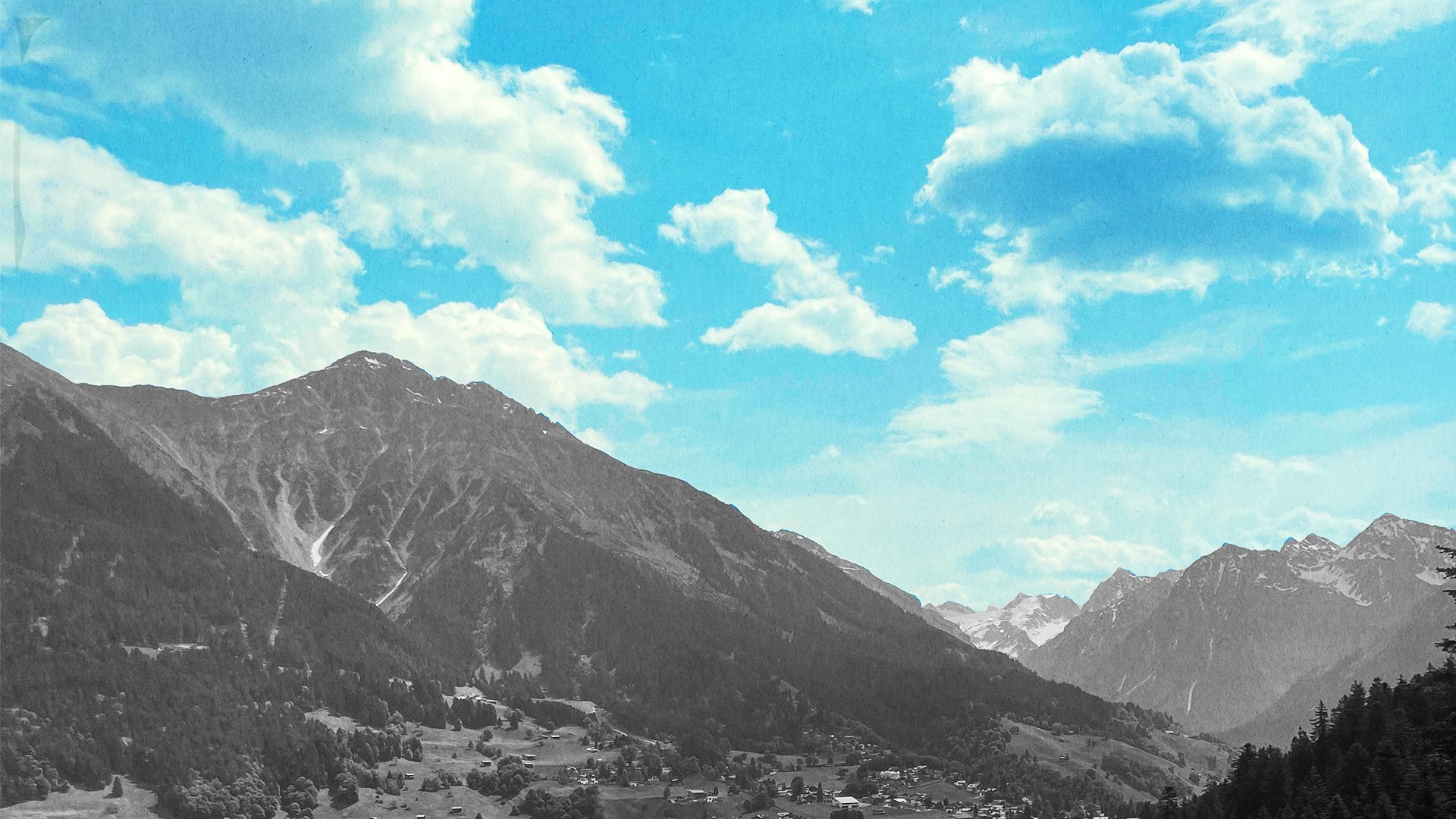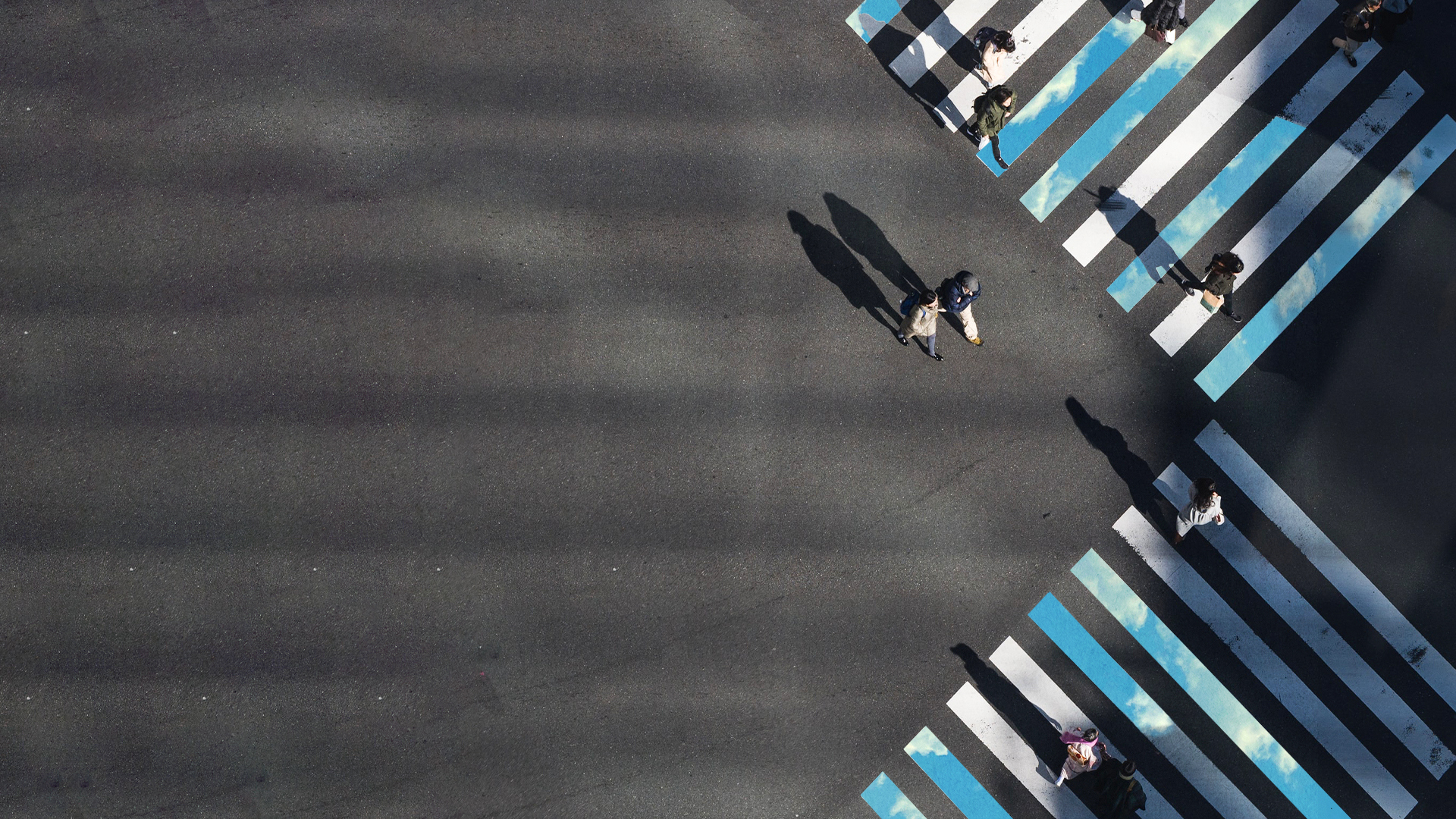The People of Da(v)os

And just like that, it’s Davos week. (Yes, apparently we’re still doing that.) Which is good news, as it signals the unofficial end of the pandemic. Because we would never put the precious lives of billionaires and costly CEOs in peril, would we? If the noble folk of capitalism are told it’s safe enough to clink saliva-stained champagne classes and close-talk during a cocktail, we can certainly sit on a friend’s couch and order sloppy takeout. Simple as that. Thanks Davos, it’s good to be back.
But also, no thanks. Why are we still living on a planet where a Hans Castorp-like panorama of the free market is guarded by a precious few? Hand over the binoculars FFS! Sure, the event brings in $60 million to locals and puts up a seven-story mental billboard with the word “normality” flashing on it, but there lies the problem, dear reader. At its core the WEF meeting still upholds some relevancy: two years ago it received a new manifesto, half a century after its first one, which now reflects the values of our reformed civil society, flashing words like “fair chance,” “value creation,” “dignity and respect.” TIME magazine renamed it a “climate change conference,” referencing Greta Thunberg’s speech and the WEF’s Global Risks Report—and yet the underlying theme of the gathering was still “better capitalism.” And this year its ambassadors are scheduled to receive a “healing education” at the so-called “Medical Psychedelics House of Davos,” mingling with actual shamans. Will the 5-Me0-DMT pill help get us out of trouble, stop global warming, and bring peace on Earth?
Somehow the feeling lingers that Davos, as a brand, is but a backwards-facing locomotive trying to put society back onto the rails of our stagnant pre-pandemic past, where “there’s widespread commitment, but not always detail.” And we think it isn’t good enough.
Oh, what’s that? You do want normalcy back? Then by all means, hitch a ride on the Davos railroad—take Vladimir Putin's vacant seat. But for the rest of us holding onto the idea that there may be some brighter sibling to the chic Swiss village (and we’re not talking about the “Global Collaboration Village” which reads like a beautiful promise, but is still very much in its introductory stage), we have something we’d like to show you.
Enter DA(v)Os (see what we’ve done there?), a city nestled in the shadow of the Magic Mountain, not too far from Davos. A city run collectively by its citizens—but not in a communism sort of way in case you were considering going down that train of thought. (Okay enough with the trains now.) Ours is actually considered to be a “curious blend of socialism and hyper-capitalism.”

In DAOs, or hubs of “Decentralized Autonomous Organization,” as our tourism office likes to call them, our people live similarly to everybody else on earth. It’s a “normal” city—we have craftspeople, creatives, entrepreneurs, even educators. We have commercial and non-commercial organizations, like fashion brands, charity funds, chess clubs, delis, and unions too. You’ll find everything you need in DAOs. But, you’ll be privy to one very special perk: citizens of our city—or “members” as we prefer to call them—take part in every step along the way of our community’s existence. Together we shape, we change, we decide, and we truly coexist. We’ve basically taken out the terms “govern” and “control” from your traditional societal structures, and turned things back to us.
So nobody owns anything?
Since we’re all co-managers and thus, co-decision makers, every one of us owns every bit of what we’ve ever said or ever made—even some rumor that’s been spreading about us. We’ll know about it. We’ll also know whether our neighbor has learned that we like sour Haribos better than the regular ones, prefer badminton to volleyball, are a few days late on watering the plants, or want our kids to go to a free-curriculum university. Kind of like cookies on a computer, except we have full control and distribution rights on where our data goes. There is no invisible middleman collecting information before selling it to the black holes of tech. See, that doesn't happen here. There are no surprises as to what the outside world may know about us, or our preferences. The information is ours, we know it, see it, and chart it everywhere it goes. It makes us feel like dignified human beings again. We have boundaries that are built around the principles of privacy. Remember what that feels like?
Isn’t that a lonely way of living?
We’ve been called “individualists” before. But each of our communities has a specific goal, a clear set of rules. And we’re happy to work together to create them. How? Well, at some point we, the citizens of DAOs, had had enough of the all-knowing boards, decision-happy committees, and symposiums for people in power who frankly didn’t deliver much. Instead, we came together to buy our city’s original constitution. In our case, it was a successful bid—I mean, who wouldn’t want to own the constitution? The next step was to receive governance rights for it in order to create a collective decision-making process. And we do this by involving members in voting on every decision that's ever made. We then divided things and each community took a part of it, and reworked it into their own set of rules, that you guessed it, voted on.
The rules that we set are very much part of our urban landscape—meaning that our houses and city spaces are like the guardians of our civic needs. If someone doesn’t follow the rules, the house reminds them. The walls can instantly grow mold, and the roof will creak like crazy if someone doesn’t abide. Look at it this way: we have an “intelligent home”-like built-in system where nothing depends solely on human decision anymore. This frees up enormous amounts of emotional capital that once fed off egos, political desires, and other unfortunate attributes of top-down leadership and decision-making. We can do more of the things we like because in a sense, our system makes it that we’re intrinsically invested in the life we lead.
Can I move there?
Becoming a member of the city of DAOs is quite easy. All you need to do is buy currency. No, not paper money, not coins either, those are vulgar. We use crypto currency instead, and more precisely: tokens. Think of them as a system of clouds passing above the skyline of our city. They’re always there, up above us, changing direction, nourishing the decisions we make. There are no banks here, no safes, no board of directors. Instead, every member holds their currency, together with others, in these lightweight “clouds.” It’s like they can always summon up the rain, but they don’t necessarily control the weather.
Wait, how are those different from coins? As in Bitcoins? You’ve heard of those, but this isn’t quite the same. Here’s a definition that we like to share with our city’s newest members:
“Simply put, a token represents what a person owns, while a coin denotes what they're capable to own. Additionally, everyone has used a token at least once in their life even if not in this form. For example, your car title is a token. When you sell the car, you transfer the value of the title to another person. However, you can't buy something else with that title.”
What the heck is “quadratic voting”?
A defining feature of our DAOs is how we come together to make decisions. Each little decision regarding our communal living that is approved as a proposal—be it painting houses in some color, setting up a display in a museum, or determining how we’ll care for the elderly—is made by voting in our large city town hall (it is virtual, by the way, we’d never waste money on a repressive-looking edifice like that). Each citizen is aware when voting takes place, and has the right—and is highly encouraged—to participate by using tokens. And if they don’t participate, at least they’re aware that a decision will be taken in the moment, right then and there. Our voting ranges from a regular majority to quadratic voting, which allows people to “allocate votes to express the degree of their preferences, rather than just the direction of their preferences”. Yet another example of how movement is central to the way we live and organize ourselves—using input from ordinary actors, just like you and me. Now that’s beautiful, if you ask me.
What do the people of DAOs do?
We’ve got quite a different bunch. Some of our DAO communities collect digital artwork to allow people to co-own it instead of giving ownership to just one person; some raise funds to support political causes (we might be a unique city existing outside of your standards of living, but we’re still a part of this Earth); some turn creative work, like writing, into special tokens to help creators make a living from it (we are waiting for you, perspective novelists!); some distribute grants to fund biotech research, and so on. Altogether you could say there are protocol, collector, investment, grant, media, and social DAOs. In order to operate, each community has to raise funds by selling its tokens to other city members: by buying a token, they receive membership rights to co-govern a DAO with its creators.
If you are curious about our city and would like to visit, consider the following
15 questions:
- How would you run your family as a DAO? Imagine your children had equal voting rights. Your in-laws too.
- How hard is it for you to keep a secret? Are you ready to never be keeping them again?
- What are you invested in?
- If you weren’t getting paid, would you still do the work that you do?
- Your child’s school has been transformed into a DAO. Thoughts?
- NFTs and crypto are tanking hard. Are you frustrated or secretly relieved?
- Would you be ready to leave everything and live exclusively in a virtual world run by a DAO?
- Have you ever participated in an openly rigged election?
- Do you ever want to feel what it's like to be a CEO?
- Do you agree: In
humansthe blockchain we trust? - If Facebook would have been regulated as a DAO, would we face the same problem?
- Would you be comfortable with sharing this month’s PayPal history with your colleagues?
- Are DAOs an alternative answer to a rise in authoritarianism?
- Let’s flip the coin (ha!): what’s the scariest scenario you could imagine to incentivize collective action via a DAO?
- DAOs are sometimes feared to blur the line between work and personal life. What could serve as a solution here?
